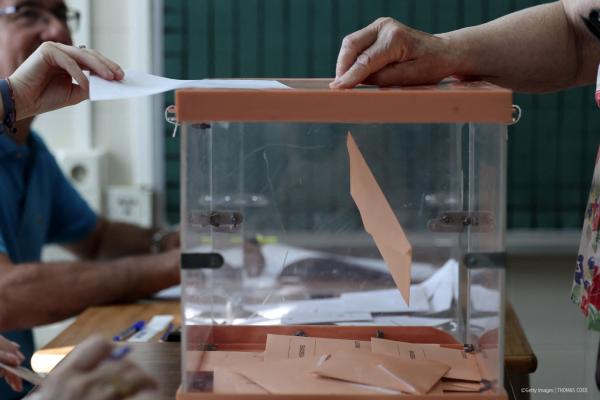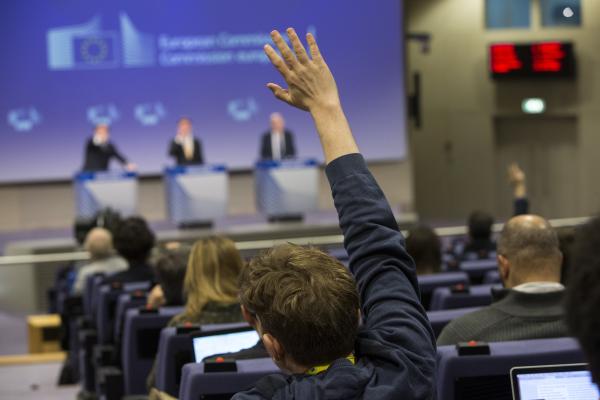Information manipulation and foreign interference are serious threats to society. They can undermine democratic institutions and processes by preventing people from making informed decisions or discouraging them from voting. And they can polarise societies by pitting communities against each other.
New technologies have made it possible for hostile actors to spread manipulated information at a scale and with a speed never seen before.
Therefore, tackling information manipulation and foreign interference, and enhancing societal resilience against these threats, are pressing issues for the European Union and its Member States.
Information manipulation actors use a variety of techniques to deceive and manipulate people online.
This can range from clones of legitimate websites to cleverly manipulated audio or videos designed to appeal to our emotions and cloud our judgment.

How is the European Commission responding?
The Commission is strengthening its strategic communication in response to information manipulation and foreign interference targeting EU policies. This requires a whole-of-society approach, as many sectors of society have an important role to play.
As part of a comprehensive response it is also important to guarantee media freedom and pluralism, and ensure that citizens have access to quality news and information they can trust.
The Commission's response to information manipulation is centred around:
- Developing policies to strengthen European democracies, making it more difficult for information manipulation actors to misuse online platforms, and protecting journalists and media pluralism
- Building up situational awareness around information manipulation through monitoring, detection and analysis of open-source information
- Countering information manipulation, foreign interference and cyberattacks through awareness-raising projects, advanced technological solutions, and improved coordination
- Enhancing societal resilience against information manipulation through media literacy
- Cooperating with institutions, national authorities, fact-checkers, civil society organisations, media, academia and other organisations
Main fields of action

Promoting free and fair elections, protecting public debate and countering information manipulation and foreign interference through the Democracy Action Plan and Defence of Democracy Package

Ensuring that platforms take responsibility in countering information manipulation and foreign interference, thanks to the Digital Services Act, the Code of Practice on Disinformation, the AI Act, and the Regulation on the transparency and targeting of political advertising

Upholding media pluralism and independence in the EU through the Media Freedom Act and legislation that protects journalists from strategic lawsuits against public participation (anti-SLAPPs)

Exposing foreign interference tactics, countering external state or non-state actors’ systemic information manipulation and ensuring preparedness in case of cyberattacks

Enabling citizens to navigate the modern news environment, raising awareness about information manipulation and foreign interference tactics, providing guidance to counter this threat through education

Supporting projects that contribute to the whole-of-society effort to counter information manipulation and foreign interference, and enhance media freedom and pluralism
Providing trustworthy information
Accurate and reliable information is vital in the action against information manipulation and foreign interference.
To help citizens distinguish fact from fiction and build their own opinion, a selection of resources on topics that are frequently targeted by information manipulation actors is available.

Information manipulation and misinformation can severely compromise humanitarian aid and civil protection actions for disaster response

Find out more about how the agreement will benefit European citizens and companies, including by boosting trade, upholding EU standards, and protecting over 350 EU products, while committing to sustainability

Addressing some common myths about the EU’s zero emissions cars policy
Timeline of EU actions against information manipulation
- February 2025
The Commission and the European Board for Digital Services endorses the official integration of the voluntary Code of Practice on Disinformation into the framework of the Digital Services Act (DSA), making the Code a benchmark for determining platforms' compliance with the DSA
- January 2025
The revised Code of conduct on countering illegal hate speech online + is integrated into the Digital Services Act
- August 2024
The Artificial Intelligence (AI) Act enters into force
- May 2024
The European Media Freedom Act and new rules against abusive lawsuits against public participation (anti-SLAPPs) enter into force
- April 2024
The Regulation on the transparency and targeting of political advertising enters into force
- March 2024
The Commission publishes guidelines under the Digital Services Act for Very Large Online Platforms and Search Engines to mitigate risks online that may impact the integrity of elections, with specific guidance for the European Parliament elections in June 2024
- March 2024
A new Cybersecurity compendium on how to protect integrity of elections is published
- December 2023
The Commission adopts the Defence of Democracy Package ahead of the 2024 European elections
- October 2023
The Commission publishes a call for proposals to support EU fact-checkers in identifying and debunking disinformation
- October 2022
The Commission publishes guidelines for teachers and educators in primary and secondary schools on how to address disinformation and promote digital literacy in their classrooms
- September 2022
The Commission presents a proposal for the European Media Freedom Act
- June 2022
A strengthened Code of Practice on Disinformation is signed by major online platforms, emerging and specialised platforms, players in the advertising industry, fact-checkers, research and civil society organisations
- November 2021
The Commission presents a proposal for new laws on transparency and targeting of political advertising
- December 2020
The Commission presents a proposal for the Digital Services Act
- December 2020
The Commission establishes its European Democracy Action Plan
- June 2020
The European Digital Media Observatory is launched
- March 2019
The European External Action Service (EEAS) launches its Rapid Alert System
- December 2018
The Commission and the High Representative establish an Action plan against disinformation
- September 2018
The first Code of Practice against Disinformation is established
- September 2018
The Commission publishes a Communication on securing free and fair European elections
- April 2018
The Commission publishes a Communication on tackling online disinformation
- April 2016
A Joint Framework on countering hybrid threats is adopted to counter hostile actions designed to destabilise a region or a state
- January 2015
Launch of the EEAS East StratCom Task Force to address Russian disinformation campaigns

